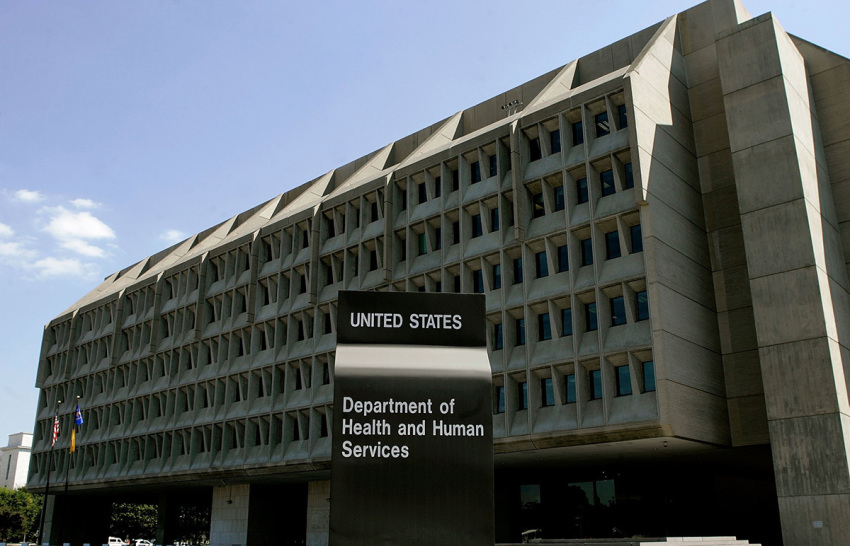HHS is hiding information about abortion pills, lawsuit claims

A prominent nonprofit organization has filed a lawsuit against the Biden administration, warning that the executive branch is suppressing information about abortion pills as safety concerns about this pregnancy termination method persist.
In an Oct. 26 statement, Judicial Watch announced that it had filed a lawsuit against the United States Department of Health and Human Services over its failure to produce documents sought in Freedom of Information Act requests pertaining to chemical abortions filed by the government watchdog agency.
In a medical abortion, women are given two drugs: Mifeprex (mifepristone) and misoprostol. Mifepristone works by blocking the effects of the natural pregnancy hormone progesterone. Misoprostol induces contractions and a miscarriage. In the U.S., these drugs are commonly referred to as the abortion pill.
“Our experience is that this chemical abortion pill did not and will not receive appropriate review from the politicized [Department of Justice],” said Judicial President Tom Fitton. “It is outrageous that Judicial Watch has had to sue in federal court for basic safety information about the abortion pill, which is being pushed on women by a desperate pro-abortion movement.”
The complaint, filed in United States District Court for the District of Columbia on Oct. 17, discussed the information Judicial Watch sought to obtain in its FOIA requests. A Feb. 24 FOIA request asked the Food and Drug Administration, a division of the Department of Health and Human Services, to provide “all emails and written correspondence, both internal and with the manufacturers of Mifeprex and Mifepristone regarding review and acceptance of those drugs’ drug stability and dissolution test results.”
Additionally, the FOIA request sought “reports from all FDA inspections of DANCO and GenBio manufacturing facilities, and assessment of compliance with applicable laws and regulations,” referring to the two manufacturing facilities that produce the abortion pill. The time frame of the documents requested by Judicial Watch covers Jan. 24, 1995, to the present.
A second request sought “Investigational New Drug Applications and related materials for the drug Mifeprex and its generic equivalent, Mifepristone” as well as “New Drug Applications ... from Jan. 24, 1990, to the present. The third request asked the FDA to provide additional test results measuring the stability of the abortion pill from Jan. 24, 1995, to the present.
After noting that the “FDA acknowledged each request on March 1, 2022, and referred to the 10-day extension to reply,” the complaint asserted that the government agency did not comply with the request in a timely manner. The lawsuit seeks a court order forcing HHS to provide Judicial Watch with the requested documents and pay attorney’s fees related to the litigation.
Pro-life groups have raised questions about the safety of the abortion pill, with Live Action publishing a report in 2020 titled “Abortion Pill Exposed” that documents some of the complications women routinely experience after undergoing a chemical abortion. Such complications include “severe cramping, contractions, and heavy bleeding” that can last from “9 to 16 days on average,” with 8% experiencing bleeding for more than 30 days.
The report noted that between its initial approval by the FDA in 2000 and 2018, the abortion pill caused “24 maternal deaths” as well as more than 1,000 hospitalizations and over 4,000 “total adverse events.” In 2020, nearly two dozen pro-life leaders sent a letter to the FDA commissioner urging the agency to ban the abortion pill, citing statistics finding that it comes with a “four-times higher risk of complication than surgical abortion in the first trimester.”
The effort to get the abortion pill removed from the market did not succeed and is unlikely to under the Biden administration. Chemical abortions gained renewed attention during the coronavirus pandemic as pro-abortion advocacy groups identified the pandemic and the resulting lockdowns as a reason to suspend the Risk Evaluation and Mitigation Strategies (REMS) in place for the abortion pill.
As the pro-life leaders explained in their letter to then-FDA Commissioner Stephen Hahn, the REMS requires abortion pills “to be prescribed and dispensed in a healthcare setting, hospital, or clinic.” The REMS also requires abortion providers to inform women of the side effects and have the ability to diagnose an ectopic pregnancy.
A federal judge ordered the suspension of the REMS in the summer of 2020, only for the U.S. Supreme Court to reinstate them in early 2021. Abandonment of the REMS allows women to receive abortion pills by mail, leading to safety concerns among pro-life groups.
Discussion about expanding access to abortion pills has resurfaced following the U.S. Supreme Court’s decision to overturn Roe v. Wade, the 1973 ruling that legalized abortion nationwide. The statement from Judicial Watch announcing the lawsuit includes a link to a story outlining the Biden administration’s intention to prevent states from banning the abortion pills following the Supreme Court’s ruling, which it vigorously opposed.
Ryan Foley is a reporter for The Christian Post. He can be reached at: ryan.foley@christianpost.com



























